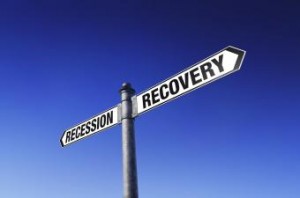 Continuing to forecast an upcoming recession that has been on Fannie Mae’s Economic and Strategic Research Group’s economic outlook for months now, the forecast has been updated this month to take into account turbulence in the banking sector caused by the collapse of Signature Bank and Silicon Valley Bank and troubles with Credit Suisse overseas.
Continuing to forecast an upcoming recession that has been on Fannie Mae’s Economic and Strategic Research Group’s economic outlook for months now, the forecast has been updated this month to take into account turbulence in the banking sector caused by the collapse of Signature Bank and Silicon Valley Bank and troubles with Credit Suisse overseas.
However troubling these events have been however, has not changed Fannie Mae’s outlook for recession conditions to coalesce this year as they already expected a moderate economic contraction to occur this year, and, historically, turbulence in financial markets have been a characteristic of late business cycle dynamics following monetary policy tightening, as the Federal Reserve is continuing to do. Many typical recessions have historically included bank failures as an attribute.
Prior to the collapse of the two banks, data pointed to stronger-than-expected growth during the first quarter of 2023—as a result, Fannie Mae has pushed the recession, which was supposed to occur in the second quarter of 2023, to sometime during the third and fourth quarters of 2023.
Importantly, the ESR Group does not anticipate a repeat of the 2008 Financial Crisis. Instead, it believes the Savings & Loan Crisis from the 1980s to be a better analog, specifically regarding the significant interest rate rises that set in motion banking system stress and the resultant macroeconomic effects that contributed to a modest recession in 1991.
“Inflation has now been joined by financial stability concerns as threats to sustained growth,” said Doug Duncan, SVP and Chief Economist for Fannie Mae. “These particular pre-recessionary conditions are not unusual, as bank failures often follow monetary tightening—but this may well be the catalyst for the modest recession we’ve been expecting since April 2022.”

“While the projected timing has been adjusted, many leading indicators, including extreme weakness in the Conference Board’s Leading Economic Index (LEI) and other business surveys, continue to point toward future economic contraction,” Fannie Mae said. “Furthermore, we believe the level of personal consumption will retrench at a slower pace, as its current level relative to income remains unsustainable.”
“For our housing forecast, consistent with the change in timing of our GDP outlook and the update to our interest rate forecast, we revised upward total home sales for Q1 2023 but expect a larger contraction later in the year,” Fannie Mae said. “We expect total home sales in 2023 to decline 18.4% from the 2022 total (previously a 17.6% decline) followed by a partial rebound in 2024, with home sales rising 7.1% for the year (previously 9.6%). Similarly, we modestly downgraded our forecast for total single-family mortgage originations in 2023 to $1.55 trillion (previous $1.69 trillion) and in 2024 to $1.89 trillion (previously $2.03 trillion).”
Fannie Mae also noted the collapse of the banks occurred during the writing of their report and does not yet reflect the sharp decline in intermediate- to long-term interest rates. This represents a downside risk to their mortgage rate forecast and an upside risk to home sales and mortgage originations.
Click here to see the release from Fannie Mae. Click here to see commentary from the ESR.

 theMReport.com Your trusted source for mortgage banking news
theMReport.com Your trusted source for mortgage banking news








